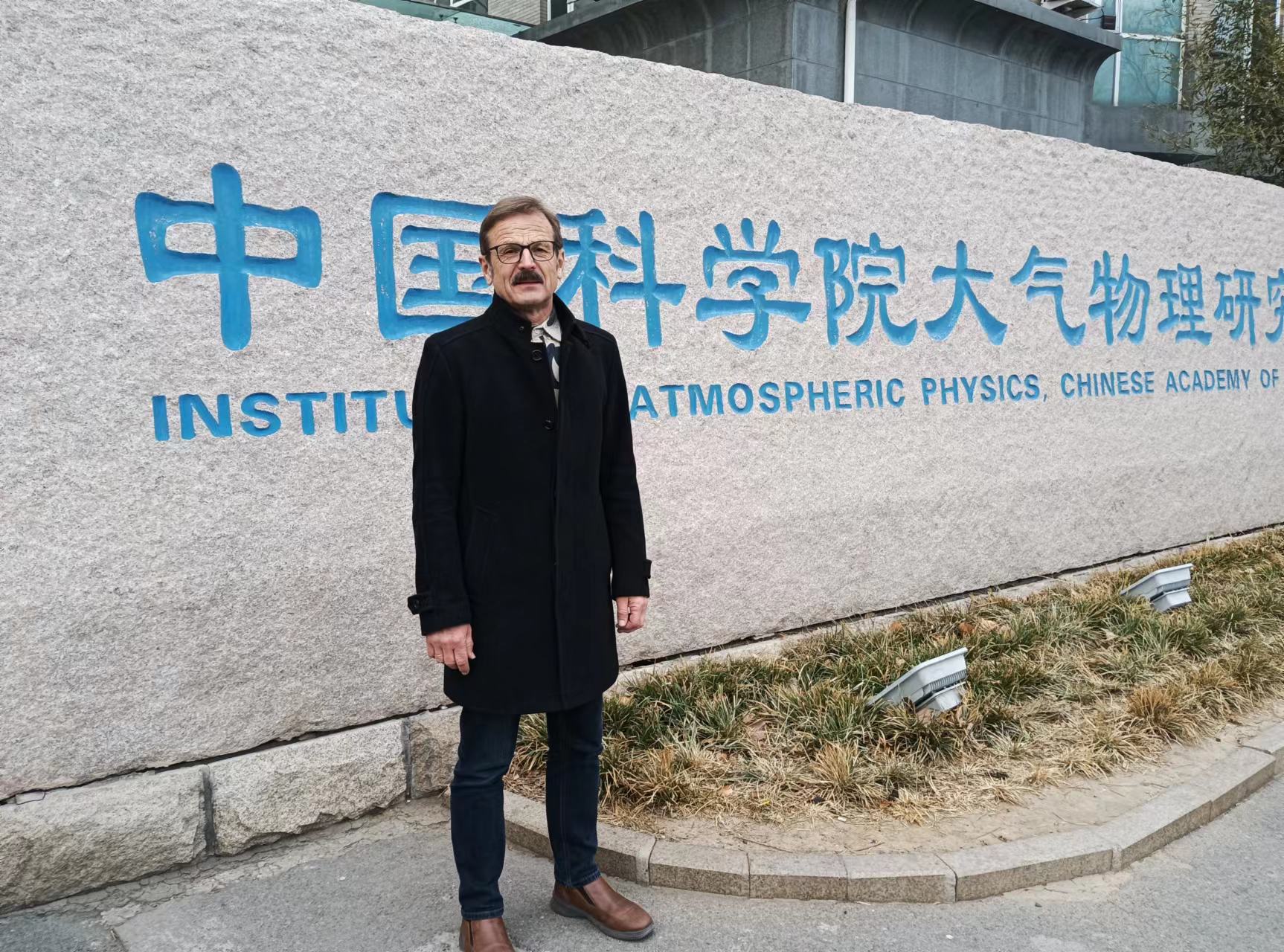Scientific Collaboration Essential for Global Progress

Professor Viktor Gouretski. (COURTESY PHOTO)
By?LONG?Yun?&?BI?Weizi
"Science is international by its nature, and collaboration is necessary to advance scientific understanding," according to Professor Viktor Gouretski in a recent interview with Science and Technology Daily.
Currently, Gouretski a renowned German scientist majoring in climatology and oceanography, works at the Institute of Atmospheric Physics (IAP), Chinese Academy of Sciences. After several years at IAP, he finds the working environment pleasant and conducive to his research. He singles out team spirit as being an essential component of the working culture, as well as being impressed by the engagement and hard work of? Chinese students.
Providing valuable resources
Gouretski has made significant contributions to the field of observational oceanography through his research. His work has focused on analyzing large data sets and improving the quality of oceanographic data, leading to a better understanding of the ocean's role in global climate change.
One of his most significant contributions to the field was his research on systematic errors in oceanographic data. In a paper published in 2007, Gouretski and his colleague demonstrated that some of the substantial variability seen in the time series of the? global ocean warming were not real but were, in fact, caused by errors in the data. Specifically, one of the instruments was found to provide a significant amount of data with systematic errors that varied over time. This variability had nothing to do with changes in the ocean itself and was distorting? global warming trends. His discovery led to a number of follow-up studies that aimed to estimate and correct these errors, allowing scientists to use the data more accurately in their research.
Another vital contribution Gouretski has made is the analysis of the World Ocean Database and the data from the World Ocean Circulation Experiment (WOCE) in particular. His work showed that the quality requirements set for scientists participating in that experiment had been met. His subsequent work resulted in? creating a printed and digital atlas for the Atlantic Ocean based on the WOCE data. This atlas provides a valuable resource for researchers studying the ocean's properties and circulation.
From his professional perspective, China has made progress in promoting sustainable development, introduction of electric cars and buses throughout the country, a developed railway network, and solar photovoltaic plants. He also recognized that China is the world's leading manufacturer of solar panels, which could lead to an increase in the use of solar energy to produce electricity.
Cooperation generates robust findings
Gouretski's views on international cooperation are not just theoretical, as he has put them into practice throughout his career. He has collaborated with scientists worldwide on projects such as the World Ocean Circulation Experiment (WOCE) and the Global Ocean Data Analysis Project (GLODAP). These initiatives have been important? in advancing our understanding of the ocean and its vital role.
International cooperation is vital for the field of observational physical oceanography, according to Gouretski. He believes collaboration between countries is essential to gather the necessary data and to conduct analysis.
The ocean is a complex and vast system, and no single nation can provide all the data required to observe the entire global ocean. Therefore, international cooperation is needed to combine efforts and gather as much data as possible. This allows for a more complete and accurate understanding of the ocean's behavior, which can support critical decisions related to climate change, ocean conservation, and other important issues.
However, simply gathering data is not enough, according to Gouretski, only collaborative efforts of developing new ideas and analysis techniques can help bring new insights and understanding about the ocean. Collaboration also helps to ensure findings are more robust and reliable, he said.
Making the ocean's role visible
Global warming? has aroused not only scientists' attention, but also the public's concern.
Gouretski's research has significantly contributed to our understanding of Earth's climate system. As he explains, the ocean is a critical component of the Earth climate? system, storing more than 90 percent of the excessive heat energy. Therefore the global ocean heat content is a crucial climate index.
The professor believes his and other oceanographers' findings are crucial to the broader public's understanding of the ocean's significance. He gave an example that a recent article published in regard to progressive warming of the global ocean has had a strong impact and attracted significant media attention. This shows that ocean warming is essential and relevant issue to the broad public.
From his point of view, scientific-outreach activities are essential for conveying scientific knowledge, fighting against conspiracy theories, and promoting evidence-based thinking. For example, in the case of global warming, many people still do not believe that human activities are the primary cause of climate change, despite overwhelming scientific evidence to explain.
???
This article is also contributed by CHEN Ye from IAP.
???







